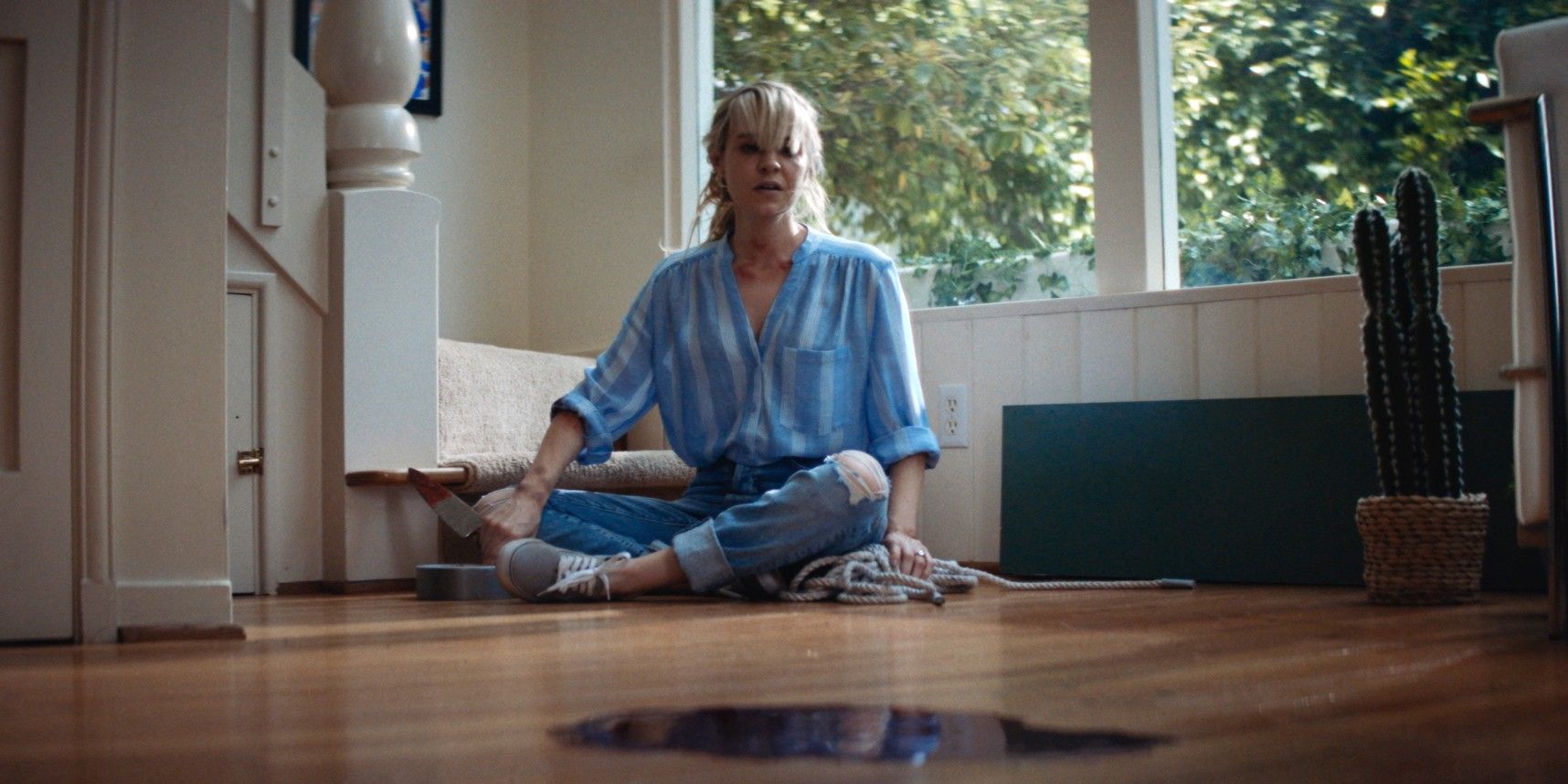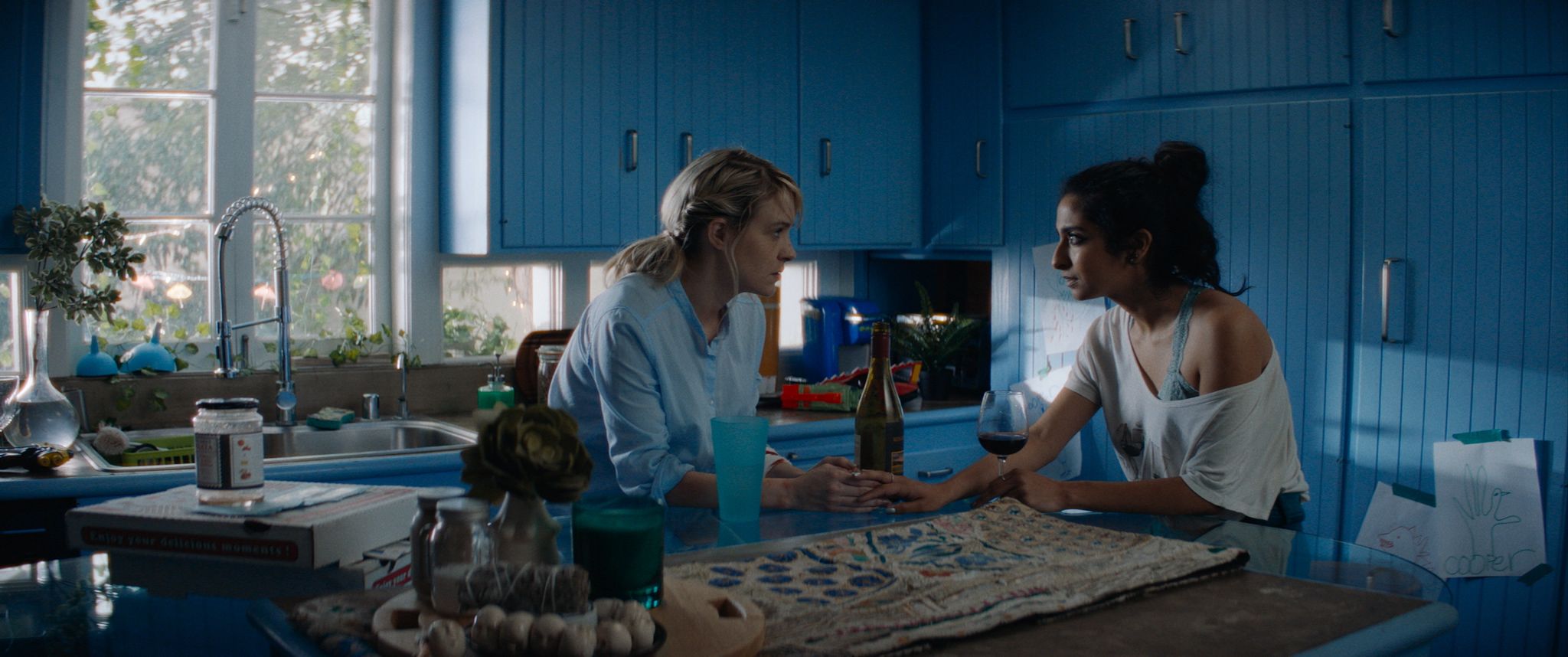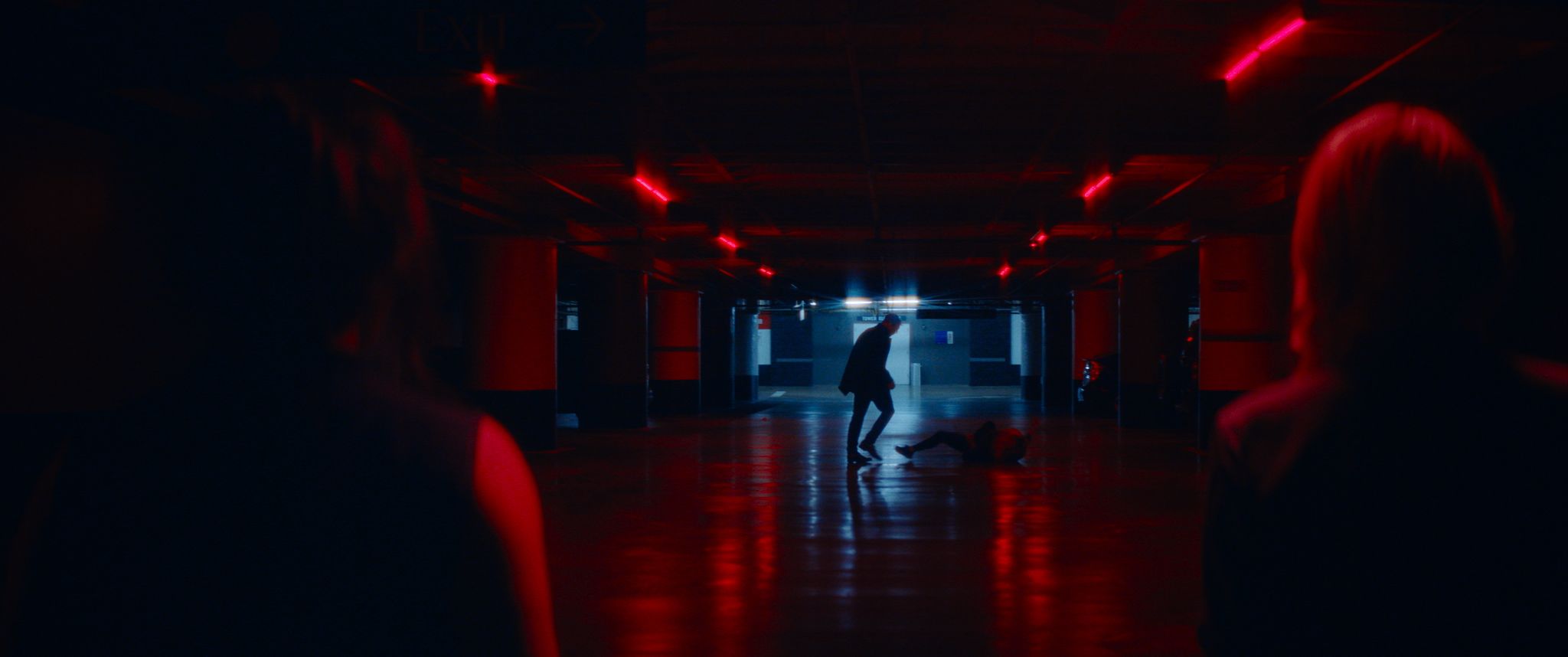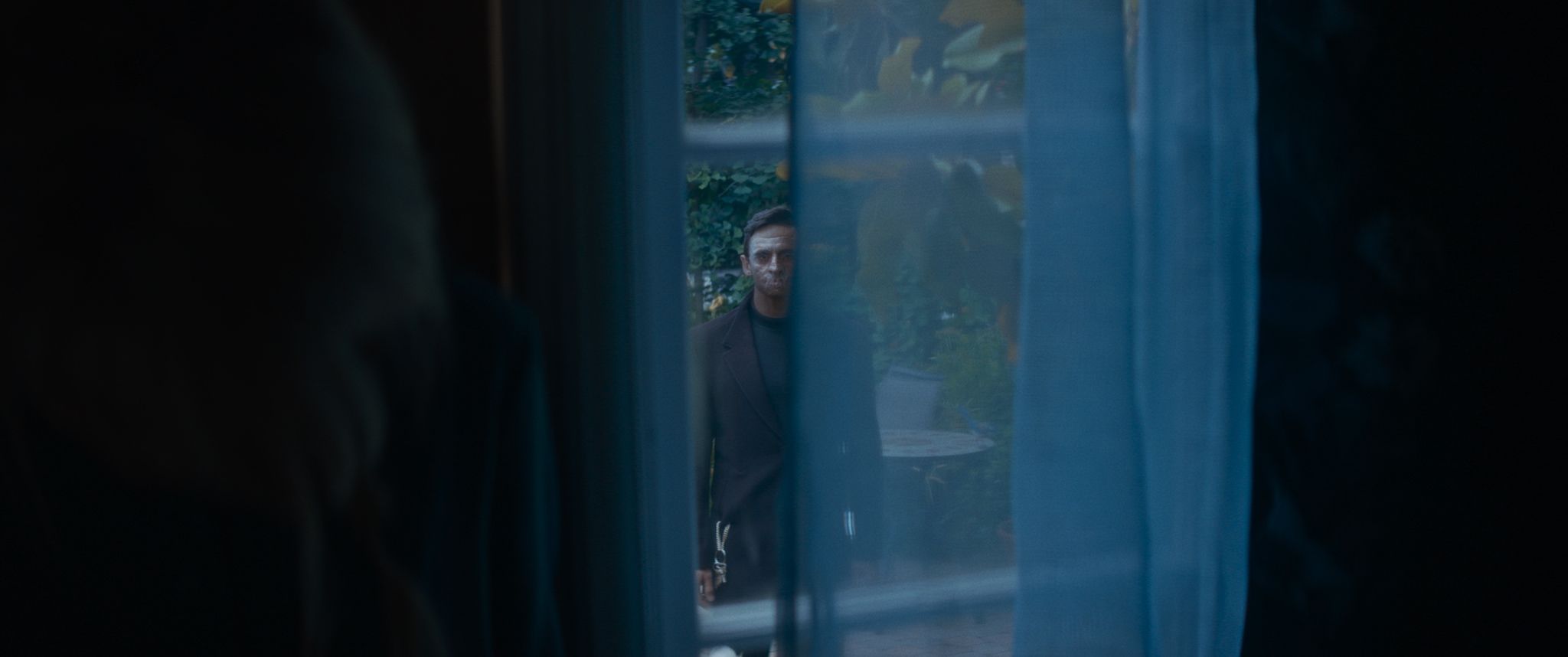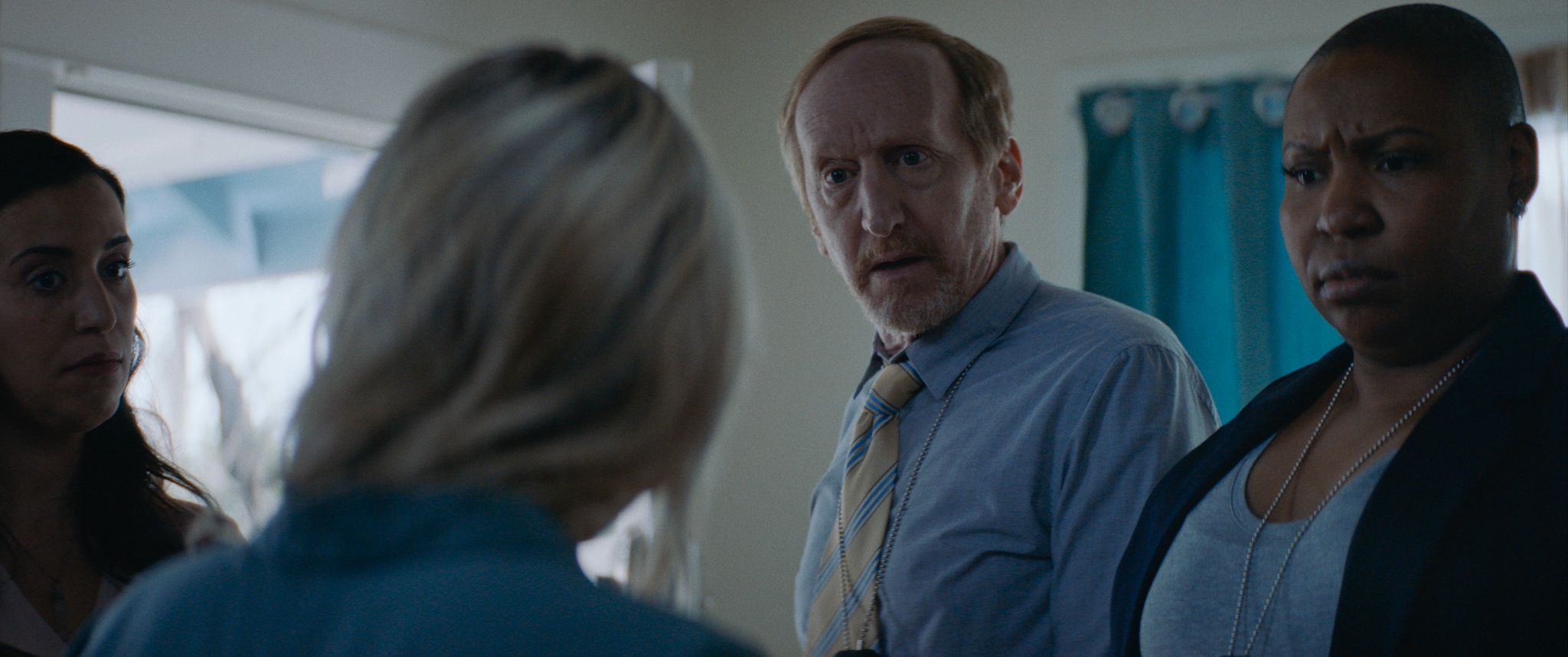WARNING: This interview for Lucky discusses fictional and true instances of women-targeted violence, including stalking, physical attacks, and trauma.
Written by and starring Brea Grant, Lucky is a time-travel horror film that masterfully splits its focus between casual male aggression and the systemic violence that women face daily. Based, in part, on Grant's own experience with reporting a male stalker, the film throws the viewer into a time loop where its confused main character May goes to bed every night knowing that there's a man outside waiting to kill her. This is just how it is in this surreal world, and even May's husband accepts this strange fact. Lucky uses its horror premise to depict not just how social systems around women-targeted violence fail survivors but also uses the genre to highlight the absurd way viewers casually expect women to be in danger.
In an exclusive interview with Grant, the writer and star broke down what it was like approaching this topic on a women-led set, depicting gaslighting within a genre that loves to not take its women that seriously, and what she hopes audiences will take away from the film.
CBR: As the writer of this project, what made you reach out to Natasha Kermani to be the director? Was this something about her style that spoke to you?
Well, I actually took the script to Epic Pictures and they were the ones who brought it to Natasha. They read the script, they loved it and they already did Natasha's first movie, Imitation Girl. They wanted to do another one with her. They were big fans of her work. Then I met Natasha, we have the same manager, which was just random, and I really liked her work. It has a really strong sense of visual style. But she also has a very strong sense of self. She's such a cool person. So when they were like, "We want Natasha to direct," I was like, "Yeah! I'm on board." I think it was a great decision.
With all due respect to your personal experience, I read in prior interviews that the script is based, in part, on your experience with a stalker and how the systems around that treated the experience. So, I was really curious about how that informed how you wrote May? What did you want the audiences to take away about the way that systems view women in similar situations?
I'm glad you read that. A lot of people, actually, were like, "What was the inspiration?" And it's like, "Do I really have to relive this every 10 minutes?"
Obviously, it's part of it. The whole movie is a metaphor for violence against women. But what Lucky does -- and what I wanted to be a little bit more nuanced -- is about violence from the point of view of May, in a specific experience with a system that doesn't treat her as an individual, in a system that doesn't have any solutions. But, in other ways, May has it easier than some of the other women in the film experiencing this as well. Something that I talk about a lot is the film's name Lucky. Obviously, it's ironic. You're not lucky to be attacked, but in some ways, May has money. She is a white woman with a job. She has a lot of privileges. So, for me, I wanted to tell this specific story about her and the way she feels ignored by the system or the way the system doesn't work for her. We use a much bigger way of telling that because the people literally treat it like it's normal.
And that's the problem is this normalization of violence against women, right? We don't know women who don't have a story like this. It's rare if a woman doesn't have a story about being followed to her car or is afraid when they're alone in a parking garage. Every woman has a story. We were trying to get at those big themes in a more horror way.
One thing I really loved about Lucky was how it used absurdity to portray gaslighting. I think a lot of films try to show gaslighting, and sometimes, it just doesn't work. I thought it was really interesting that May is the straight man, so to speak, and everyone around her is just acting so absurd and continuing to normalize the world's violence. Did you always know that you wanted May to be a no-nonsense character when you writing the character you'd portray?
Yeah, I did. I didn't write it for myself to star in and always thought May was more put together as a person. She is more no-nonsense. She is more take no shit. We're very different people, but I wanted her POV. We're seeing it through her eyes as the world around her is going more surreal and more insane. She's the fish-out-of-water. You can see it from her perspective and say, "This is nuts." And you can see it in the real world too and be like, "Wow it is nuts that women in the real world are also scared every single day of their lives."
What was one thing about the script that changed once you started filming?
Because of the smaller movie, there were certain concessions that had to be made. In the original parking garage scene, we were supposed to look down. May is on this top floor and she sees all these women being attacked on many levels below her in this really scared and unnerving moment. But, there weren't many parking garages like that in L.A., so it wasn't a rewrite but Natasha did find this beautiful way to show this moment without the levels.
With respect to Promising Young Women, while I appreciate what it was doing I remember feeling so much anger when it came out because, for a film about the violence that women experience, there weren't many women in it. What was it like working with so many women, especially in the film's ensemble scenes?
A lot of our department heads on it, almost all of them, were women, which made the set a really enjoyable space. I act in a lot of horror movies. I've been attacked many times in horror movies. There are many days that I come home and I'm literally bruised and literally scratched. My stomach hurts from crying all day -- that's just the role of a horror movie actress.
I will say on this one: I felt very supportive. I never was worried. It was actually a really nice atmosphere. There are fun parts to making horror movies. I love special effects. I love action sequences. That stuff is really fun to me. The not-fun part is having to get attacked or having to cry. I find it really taxing. Again, this one, I will say was enjoyable. Me and Natasha walked away and we're like, "Okay, what are we doing next together?" We had just such a great relationship. She steers a very steady ship, and I always felt very taken care of.
Overall, what do you hope audiences will take away from watching Lucky?
There's a problem with normalizing violence against women. What's interesting about this movie is that May is a very flawed character. I'm always interested in writing flawed women. I love thinking about flawed women. Women are people, therefore we are flawed. I am a flawed human. May is a flawed character, but that doesn't mean she deserves to be attacked every single night in her home. No one in this world does.
Following that up, there's a really interesting question that this film asks. I don't think it tries to answer it, so much as present it: How can you support other women as a woman if you're not quite sure how to support yourself? Did you always plan to have that question in the film's larger themes?
It was something some people bumped against. Especially when the movie came out, I got multiple DMs from men saying that they felt like this wasn't a very feminist movie as it's not showing women supporting other women. And I was like, "It's the realistic move this character would do." And it's because it's been so ingrained into her that she has to do everything herself. She has to go it alone. She even preaches this, right? At the end of the day, the lesson is that it doesn't work. It doesn't work. We all do need each other. We need each other through not just this, but all the other things that we have experienced collectively.
Do you and Natasha have other projects coming up in the future?
We have a news-related one. I will say that. We're in production right now, so we've had to take a break. But, we're tackling more complicated women. She also gets it. She also loves writing about complicated women with lots of flaws. So I think anything we come up with together is going to have really interesting women who live in the grey area.
Lucky is available on VOD, Digital HD, and DVD on Aug. 3.

